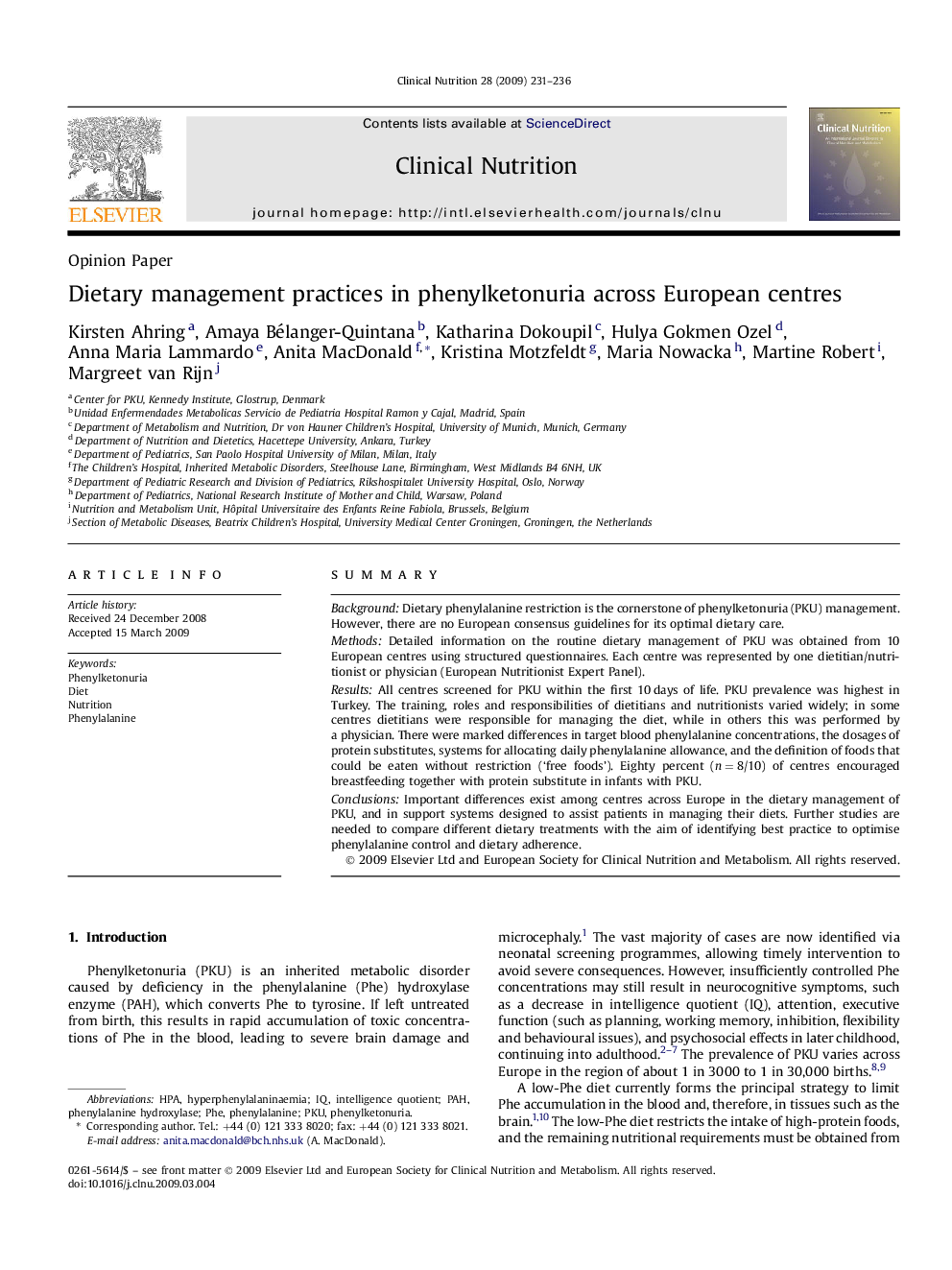| Article ID | Journal | Published Year | Pages | File Type |
|---|---|---|---|---|
| 2688523 | Clinical Nutrition | 2009 | 6 Pages |
SummaryBackgroundDietary phenylalanine restriction is the cornerstone of phenylketonuria (PKU) management. However, there are no European consensus guidelines for its optimal dietary care.MethodsDetailed information on the routine dietary management of PKU was obtained from 10 European centres using structured questionnaires. Each centre was represented by one dietitian/nutritionist or physician (European Nutritionist Expert Panel).ResultsAll centres screened for PKU within the first 10 days of life. PKU prevalence was highest in Turkey. The training, roles and responsibilities of dietitians and nutritionists varied widely; in some centres dietitians were responsible for managing the diet, while in others this was performed by a physician. There were marked differences in target blood phenylalanine concentrations, the dosages of protein substitutes, systems for allocating daily phenylalanine allowance, and the definition of foods that could be eaten without restriction (‘free foods’). Eighty percent (n = 8/10) of centres encouraged breastfeeding together with protein substitute in infants with PKU.ConclusionsImportant differences exist among centres across Europe in the dietary management of PKU, and in support systems designed to assist patients in managing their diets. Further studies are needed to compare different dietary treatments with the aim of identifying best practice to optimise phenylalanine control and dietary adherence.
